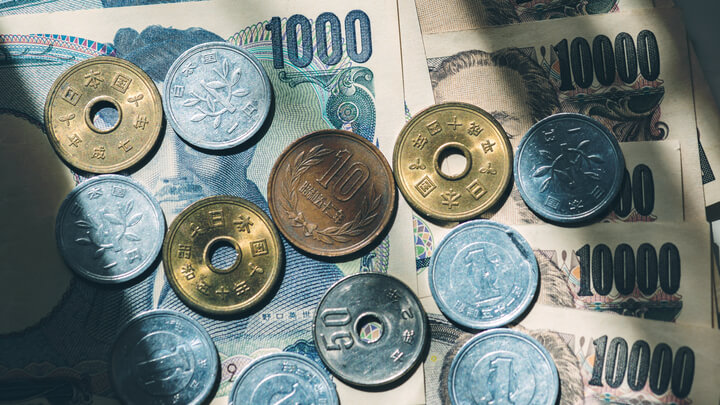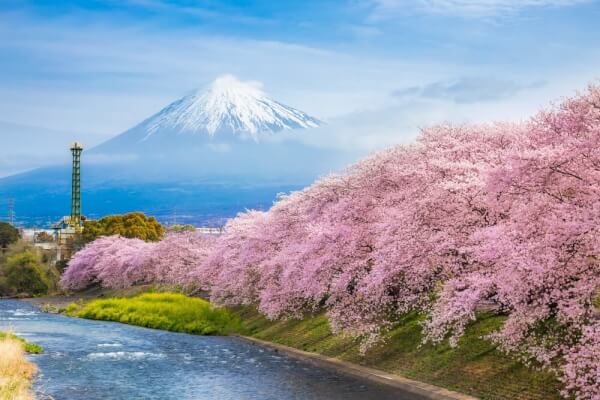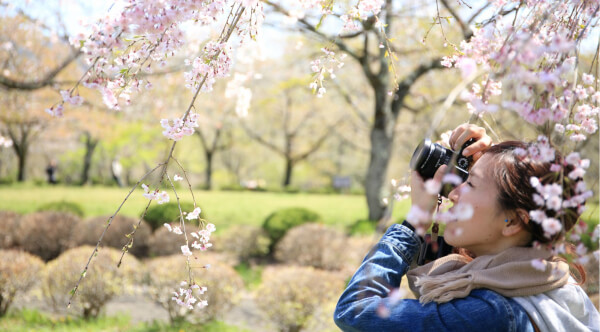Japan Travel Tips - 11 things to know before going to Japan
Heading to Japan? Here are 11 essential tips to help you prepare for a smooth, stress-free, and unforgettable experience!

Japan's vibrant cities and serene countryside attract millions of visitors from around the globe. Whether you're drawn to the high-speed bullet trains, world-renowned sushi, or picturesque ski resorts, Japan offers a unique and unforgettable travel experience.
If you're planning a trip to Japan, you'll need Japanese Yen (JPY). While Japan is a developed nation, cash is still widely used, especially outside of major cities. This guide provides an overview of the Japanese currency and banking system, helping you get and spend Yen during your travels. It will also show how Wise can be your best ally to manage your money on your travels abroad.
The official currency of Japan is the Japanese Yen (JPY). It's one of the most traded currencies in the world.
| Yen Symbols | JPY, ¥, 円 |
|---|---|
| JPY Coins | Coins are available in denominations of 1, 5, 10, 50, 100, and 500 Yen. |
| JPY Banknotes | Banknotes are issued in denominations of 1,000, 2,000, 5,000, and 10,000 Yen. |
Japanese coins are designed with distinct features, including different sizes, patterns, and even holes in the center of some coins (the 5 and 50 Yen coins), making them easy to differentiate.
Foreign currencies are generally not accepted in Japan. You'll need to exchange your money for Yen.
Research exchange rates before your trip. You might find better rates in Japan than in your home country, but it's always best to be informed.
Before exchanging any money, it's crucial to know the mid-market rate (the same one you usually see on Google). This is the "real" exchange rate – the midpoint between the buy and sell rates on the global currency market. Tourist exchange rates are always based on this rate, adding their fees.
While you can exchange money at airports and hotels, the exchange rates are typically less favorable. If you need Yen immediately upon arrival, exchange only a small amount. ATMs are often a better option at airports. For larger amounts, wait until you can find a bank or currency exchange service in the city.
Be cautious of currency exchange services that advertise "Zero Commission" or "No Fees." They often make their profit by offering a less favorable exchange rate. Always compare the offered rate to the mid-market rate to understand the true cost.
If you're exchanging cash in Japan, ensure your banknotes are in good condition – clean, crisp, and without any tears or significant markings. Damaged notes may be rejected.
Traveller's Checks are rarely accepted for direct payment in Japan. You'll need to cash them at a bank or, potentially, a currency exchange service, and the rates are usually not advantageous. Not all banks or exchange services will accept them. ATMs and debit/credit cards are generally a much more convenient and cost-effective option.
While credit and debit card acceptance is increasing, Japan remains a largely cash-based society, especially outside of major cities and tourist areas. Smaller businesses, traditional restaurants, and local shops often only accept cash. It's essential to carry sufficient Yen at all times.
Major credit cards (Visa, Mastercard, American Express) are generally accepted at larger hotels, department stores, and restaurants that cater to international visitors.
Notify your bank of your travel dates to Japan before you leave to avoid having your card blocked due to suspected fraud.
When using your credit or debit card, you may be offered the option to be charged in your home currency. This is Dynamic Currency Conversion (DCC). Always decline DCC. It allows the merchant's bank or ATM to set the exchange rate, which is almost always worse than the rate your own bank would provide. Always choose to be charged in the local currency (JPY).
ATMs are widely available in Japan, especially in urban areas. Use these locator tools to find ATMs near you:
Important Note about Japanese ATMs: Not all Japanese ATMs accept foreign cards. Look for ATMs with international network logos (Visa, Mastercard, Cirrus, Plus, etc.). ATMs at 7-Eleven convenience stores, post offices (Japan Post Bank), and some major banks (like SMBC Trust Bank PRESTIA) are generally the most reliable for foreign cards.
Contact your home bank to inquire about their fees for international ATM withdrawals and foreign transactions.
As with credit/debit card transactions, ATMs may offer DCC. Always choose to be charged in the local currency (JPY) to get the best exchange rate from your bank.
Be aware that some Japanese ATMs may have relatively low withdrawal limits per transaction.
Japan's banking system is dominated by three "megabanks":
While traditional banking methods are available, they can often be expensive and inconvenient. Wise offers a streamlined, cost-effective way to manage your money in Japan:
By using Wise, you can save money on currency exchange and international money transfers, making your trip to Japan more affordable.
*Please see terms of use and product availability for your region or visit Wise fees and pricing for the most up to date pricing and fee information.
This publication is provided for general information purposes and does not constitute legal, tax or other professional advice from Wise Payments Limited or its subsidiaries and its affiliates, and it is not intended as a substitute for obtaining advice from a financial advisor or any other professional.
We make no representations, warranties or guarantees, whether expressed or implied, that the content in the publication is accurate, complete or up to date.

Heading to Japan? Here are 11 essential tips to help you prepare for a smooth, stress-free, and unforgettable experience!

Wondering when the best time to visit Japan is? Learn more about weather, seasons and what to do throughout the year in Japan.

Just under 10 hours direct flying time from Australia, Japan is a much-loved travel destination for many Aussies with more than half a million of them landing...

Japan is generally viewed as a medically-safe location for tourists with high-quality medical care. If you’re visiting Japan for a holiday or short-term...

You’ll find international automatic teller machines (ATM) and cash dispensers in more than 20,000 post offices and 10,000 7-Eleven convenience stores across...